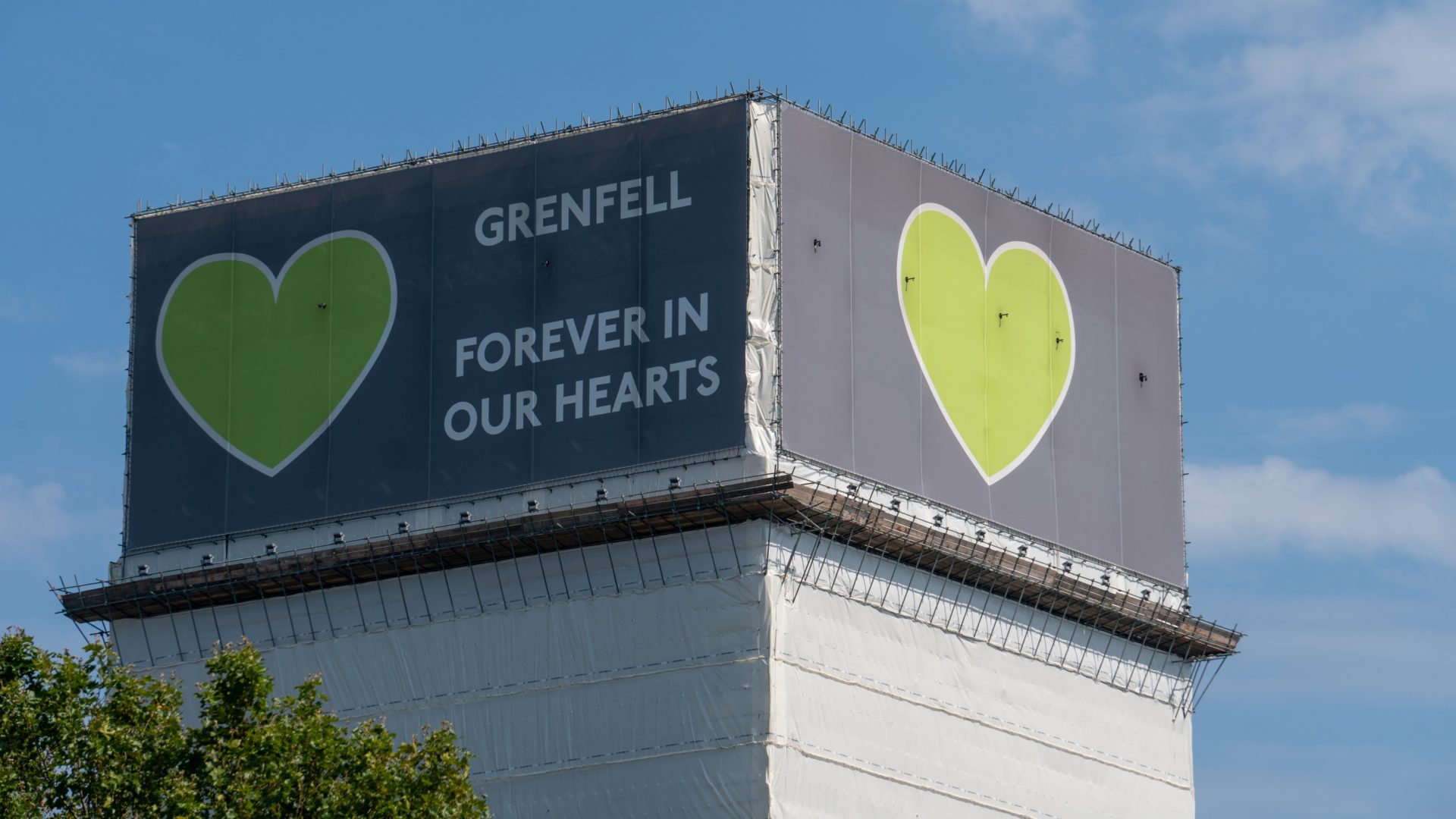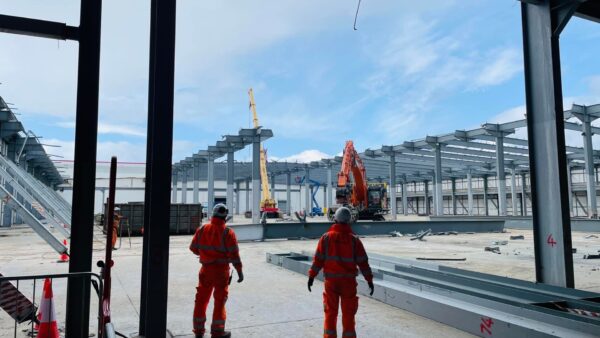Gavin Skelly FCIOB tells CM why he thinks construction should go beyond regulations to drive cultural change in the industry.

In her final report on building regulations in the wake of the Grenfell Tower fire, Dame Judith Hackitt condemned the ‘race to the bottom’ in the construction industry that led to the preventable disaster which killed 72 people on 14 June 2017.
“Unfortunately, the race to the bottom is alive and well,” says Gavin Skelly FCIOB, founder of Fire Aware, an organisation aiming to tackle the underlying cultural issues in the industry that contributed to the Grenfell Tower fire. “It will continue as long as people’s behaviour allows it to, because regulations alone don’t necessarily stop that.”
Skelly created Fire Aware – “the moral identity of fire safety” – in 2021 with Senan Salman RIBA to drive cultural change among contractors and the supply chain by creating market incentives and accountability for responsible behaviour, rather than relying solely on regulations.
Learning by osmosis
Although not a fire specialist (his background is in contracting and he has been in the industry for over three decades), Skelly says he has learnt “an awful lot about it, almost by osmosis” through his regular conversations with people in the sector who have first-hand experience of it.
“What we realised fairly early on is that while the government is looking at playing with the regulations, unless you get people to act in a way that makes those rules stand up, you’re always going to find someone manipulating or massaging them to work to their advantage,” Skelly tells CM.
Skelly continues that although he’s known “a lot of contractors” who are responsible and abide by the regulations, he’s also encountered the other side of the coin where contractors and clients were willing to bend the rules.
“So I thought: how do we go about separating one from the other?” he asks. “Because on paper everyone looks the same, everyone’s accredited, everyone’s got qualifications and competencies.”

“Unfortunately, the race to the bottom is alive and well. It will continue as long as people’s behaviour allows it to, because regulations alone don’t necessarily stop that.”
This is where the Fire Aware safety marque comes in: members signing up to the Fire Aware charters and who abide by its principles can display the badge to show the public that they are responsible companies and accountable for fire safety.
A Considerate Constructors Scheme for fire safety
“We want to do something similar to the Considerate Constructors Scheme (CCS),” explains Skelly. “When you see the CCS logo, you know that a site has signed up to a set of obligations that commit it to act in a certain way, and it arguably works. Why wouldn’t we do something similar for fire?”
Fire Aware has different charters corresponding to the different nature of a business in the built environment, from main contractors, subcontractors and property developers to social landlords and domestic trades, among others.
By displaying the Fire Aware badge or logo on their websites or signage, companies can demonstrate that a building has been constructed and managed by businesses that are aware of their moral obligations to keep people safe. If concerns are raised about a company displaying the Fire Aware badge, they can lose their membership.
Although it is members that fund Fire Aware, Skelly says that it exists for the public good and is motivated by progress, not profit.
“Ultimately, no one wants to fall out of membership because who would want to be identified in a marketplace where responsibility is a key requirement post-Grenfell? Which business would want to be identified as such?”
A gamechanger for insurance
By engaging with housing associations, residents and the insurance industry, Skelly says Fire Aware is creating a centralised system for managing and reporting fire safety risks. He believes that the impact can be so great that it could “absolutely change the insurance world” as it would effectively de-risk projects, as companies with the Fire Aware badge have a “behavioural monitor” rather than just relying on regulations.
Skelly says the insurance industry sees Fire Aware as a potential tool in helping to better assess and manage fire safety risks, which could have significant implications for approaches to insuring construction projects and buildings.
As it gains traction, he continues, it could become a condition for funding or planning consents, which would drive housing associations and other organisations to use Fire Aware members to ensure they meet the necessary fire safety standards.
Skelly adds: “Once the tier ones come on board, the domino effect will start to take place and others will start to do the same, it’s competitive nature.”











